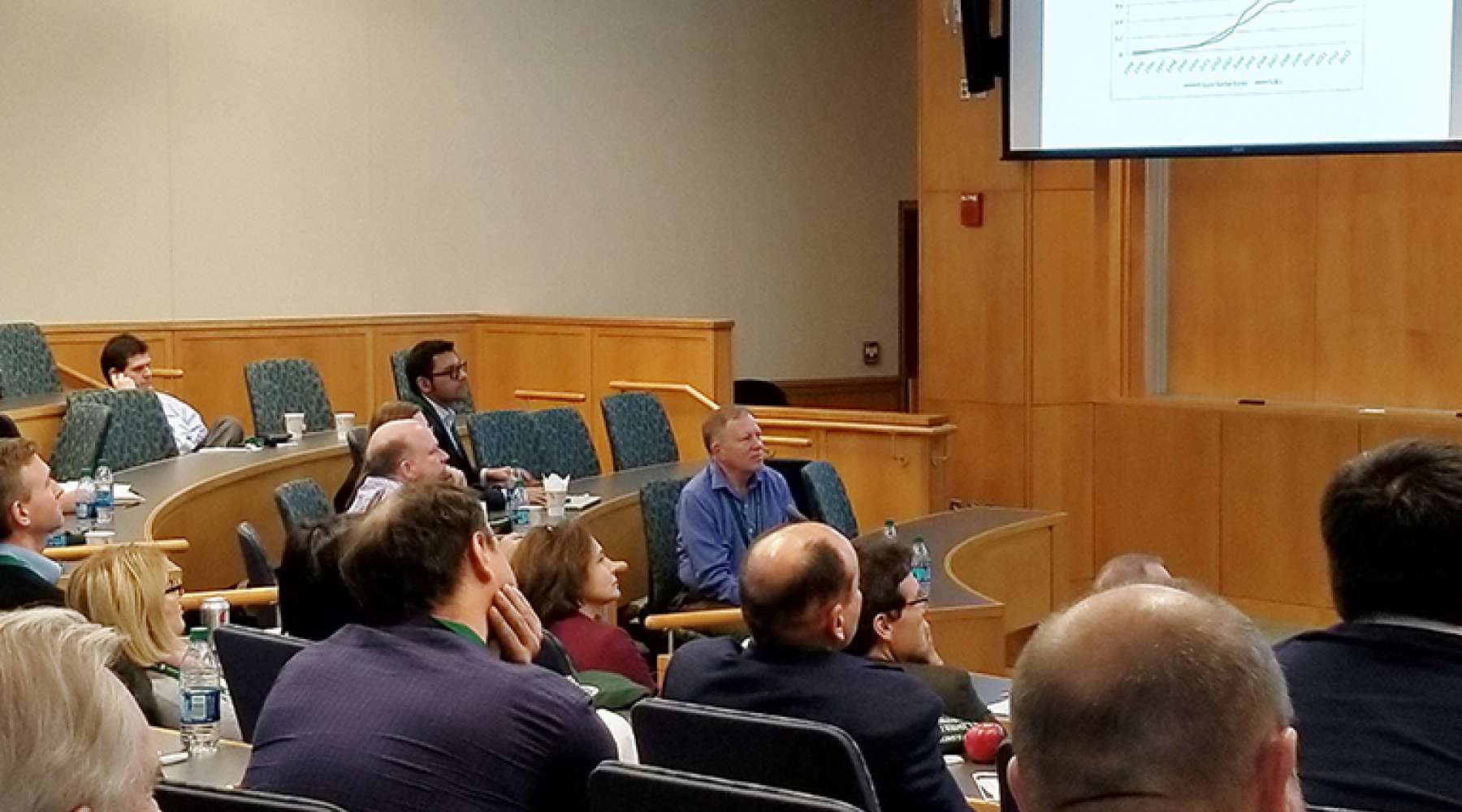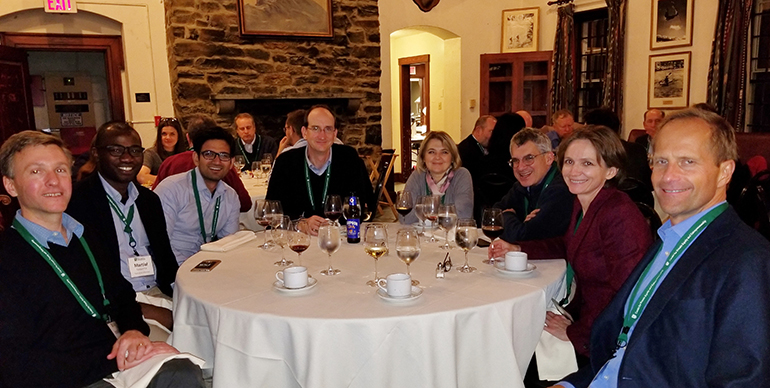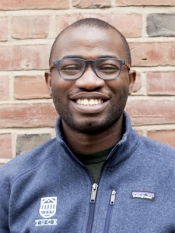
In October 2017, the Center for Private Equity and Entrepreneurship (CPEE) hosted the first Private Equity and Entrepreneurship Research Conference at Tuck. The conference brought more than 50 practitioners, professors, and advisors from the investment management industry together with academics and students to discuss the trends, opportunities, and challenges facing the sector.
In addition to professors from Dartmouth, attendees for the international conference included renowned academics from top U.S. and international business schools (Harvard, Columbia, Duke, MIT, USC, Yale, London Business School, and the Norwegian School of Economics) and industry professionals from BlackRock—the conference’s sponsor—Hercules Capital, Kenmont Capital Partners, and Staley Capital. Dean Matthew J. Slaughter also made an appearance at the Dartmouth Outing Club House for dinner, where he hosted an impromptu Q&A on the current geopolitical climate. As a fellow with the CPEE, I had the privilege of being one of the few students in attendance.

With private equity coming out of the recession relatively unscathed, investors have committed large sums of money to private equity funds, and are increasingly looking for opportunities to either co-invest alongside funds or even compete with the funds for direct deals. Concurrently, valuations have returned to pre-crisis levels and leverage on recent deals has been high. Despite strong demand for the asset class, high valuations are a concern, with 70 percent of investors considering it to be one of the key issues facing the private equity industry [1].
Gordon Phillips, the C.V. Starr Foundation Professor and faculty director of the CPEE, described the principal objective of this two-day conference as advancing interdisciplinary research in private equity and entrepreneurship and promoting dialogue with academics and private equity professionals. To facilitate the conversation, the conference was constructed in a seminar format. First, there were presentations of research papers on venture capital, buyouts, and entrepreneurship by their respective authors, followed by scholars in various fields discussing the paper before setting the stage for an open discussion by all participants. One of the notable presentations included a paper by Professor Francesca Cornelli, from LBS in London, with commentator Dr. Karin Thorburn, a professor from the Norwegian School of Economics.
The international participants and interactive format provided a unique opportunity for participants to hear insights from leading specialists in the sector, and to debate the critical issues facing the industry at this time. Perhaps it should come as no surprise that, according to academics, theory differs significantly from reality, as one HBS professor noted, “I am having a difficult time convincing my students from the PE world that leverage can be a bad thing.” This comment prompted a debate on when leverage can facilitate value increases. As with many business questions, the answer is “it depends”—on amount or extent.
The mission of Tuck CPEE is to inspire the next generation of private equity investors and entrepreneurs through experiential engagement and academic excellence with a vision to build a community of thriving private equity investors and entrepreneurs, committed to transforming the world through value creation and thought leadership. With this conference, the Center demonstrated its ability to uphold evidence-based viewpoints on the private equity industry, in line with the high standard of academic integrity embodied by the Tuck School of Business.
[1] Prequin Global Private Equity and Venture Capital Report, page 16
For more details, see the 2017 conference program.

Martial Combari T’18 is an African-born, French and American-educated finance enthusiast who now calls the U.S. home. He spent five years working in financial services in New York, Minneapolis and San Antonio."My experiences at Tuck have provided me with a distinctive viewpoint that compels me to continuously challenge the status quo, influence change in communities, and ideally help others succeed along the way."